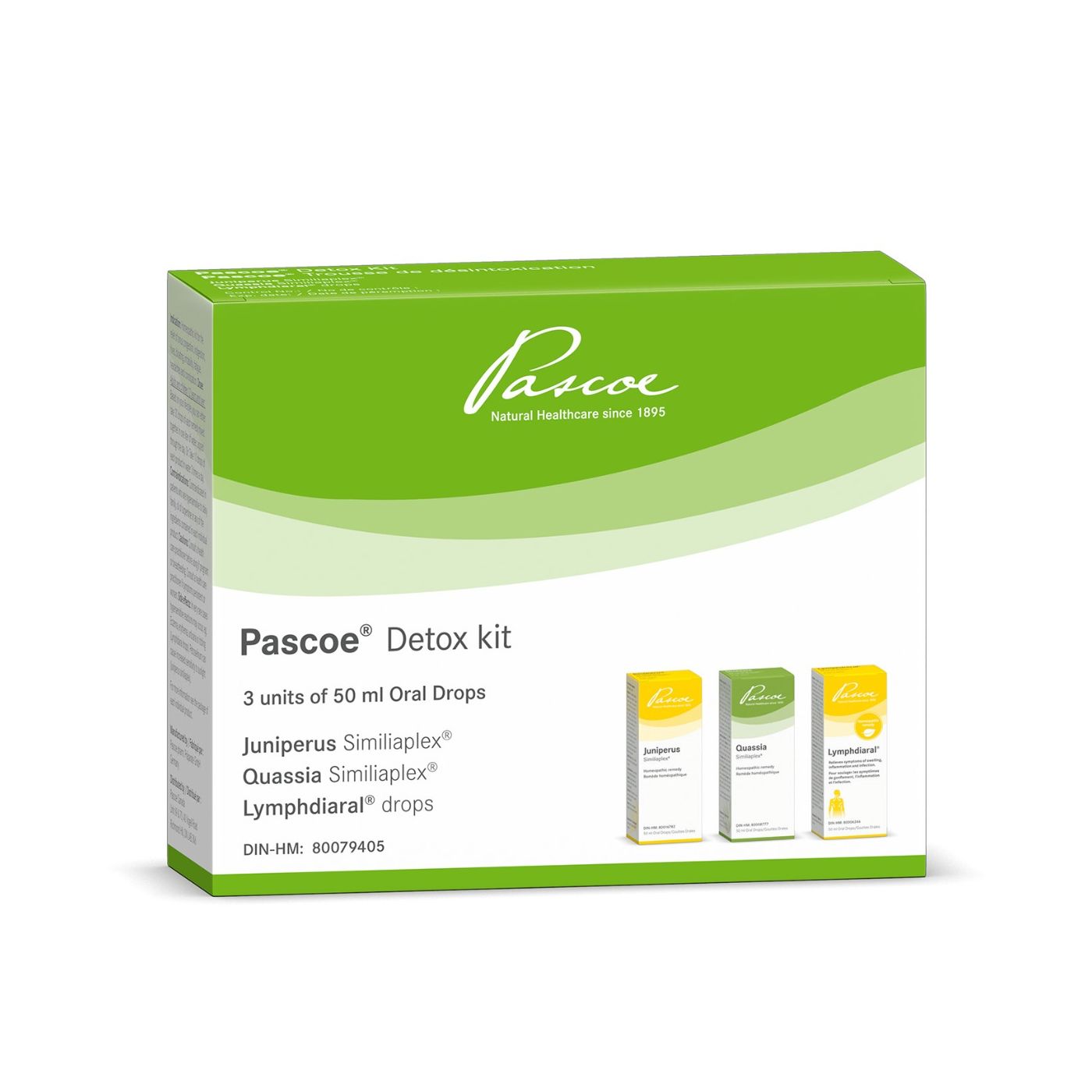Adopting a Healthier Lifestyle to Support a Detox
Detox diets have gained popularity in recent years as people look for ways to cleanse their bodies and improve their overall health. These diets often involve making dietary changes to remove toxins and promote detoxification. Whether you’re looking for greater lymphatic support or a full-on kidney cleanse, you will receive the most long term benefits by taking it a step further than just detoxes and cleanses, by also adapting your lifestyle to complement the processes.
Here are our top tips for adapting your diet and adopt healthy habits to support a detox.


Understanding Detoxification
Before diving into the necessary dietary changes, it's essential to understand what detoxification is and why it matters.
Detoxification is a natural process by which the body eliminates harmful substances and toxins. Your liver, kidneys, skin, and other organs work together to break down and remove these unwanted compounds from your system.
However, in our modern world, we are exposed to various toxins from the environment, processed foods, and other sources, which can overload our detoxification systems. This is where a detox diet comes in, aiming to support and enhance the body's natural detox processes.
1. Increase Water Intake:
One of the simplest and most effective ways to support detoxification is by drinking more water. Staying hydrated is essential for your body's natural cleansing processes, as it helps flush out toxins through urination and sweat. Aim to drink at least eight 8-ounce glasses of water per day, and more if you're physically active.
2. Choose Whole, Unprocessed Foods:
A detox diet should focus on whole, unprocessed foods. This means avoiding highly processed and refined foods, which are often loaded with unhealthy additives and preservatives. Healthy diets consist of fresh fruits and vegetables, whole grains, lean proteins, and healthy fats. These foods provide essential nutrients and antioxidants that support proper detoxification.
3. Embrace Fruits and Vegetables:
Fruits and vegetables are rich in vitamins, minerals, fiber, and antioxidants that help the body detoxify. They provide essential nutrients for your liver, which plays a crucial role in detoxification. Try to incorporate a variety of colourful fruits and vegetables into your daily meals. Some excellent choices include leafy greens, berries, citrus fruits, cruciferous vegetables (like broccoli and cauliflower), and beets.
4. Focus on Fiber:
Dietary fiber is another essential component of a detox diet. Fiber helps support digestion and the elimination of waste products from the body. It also binds to toxins and carries them out of the body. Foods high in fiber include whole grains, legumes, nuts, seeds, and, of course, fruits and vegetables. Make sure to include these in your diet to promote healthy digestion and detoxification.
5. Lean Protein Sources:
Protein is vital for detoxification because it helps the liver function effectively. Choose lean sources of protein, such as chicken, turkey, fish, and plant-based options like beans, lentils, and tofu. Avoid processed and high-fat meats, as they can put extra strain on your liver and can lead to heart disease.
6. Herbal Teas:
Certain herbal teas can help support detoxification when paired with a healthy lifestyle. Teas like dandelion, ginger, and green tea have been associated with liver health and other detoxifying properties. These teas can be a great addition to your daily routines.
7. Limit Sugar and Processed Foods:
Sugar and highly processed foods can hinder your detoxification efforts. Excessive sugar consumption and poor blood sugar regulation can lead to inflammation and stress on your liver and body. Processed foods are often high in unhealthy fats, additives, and preservatives. Reducing your intake of both sugar and processed foods is crucial for a successful detox.
8. Reduce Caffeine and Alcohol:
Caffeine and alcohol can also strain your detoxification pathways. While some studies suggest that moderate caffeine consumption can have health benefits, excessive caffeine can disrupt your sleep and stress your liver. Alcohol, on the other hand, is always known to have a negative impact on liver function. If you decide to detox, consider reducing or eliminating your caffeine and alcohol intake for a period.
9. Emphasize Anti-Inflammatory Foods:
Inflammation is closely linked to many chronic health conditions, and reducing inflammation is a key component of detoxification. Foods like turmeric, garlic, ginger, and omega-3 fatty acids found in fatty fish and flaxseeds have anti-inflammatory properties. Including these ingredients in your meals can help support your body's natural detox processes.
10. Hydrating, Detoxifying Foods:
Some foods are particularly known for their detoxifying properties. Here are a few to consider including in your diet:
Lemon: Lemon water in the morning can stimulate digestion and support liver function.
Garlic: Garlic contains sulfur compounds that support the liver in detoxification.
Cilantro: Cilantro has been associated with heavy metal detoxification.
Ginger: Ginger can help reduce inflammation and promote healthy digestion.
Chlorella and Spirulina: These are algae that may help with heavy metal detoxification.
Probiotic-Rich Foods: Foods like yogurt, kefir, and fermented vegetables can support gut health, which is closely tied to overall health and detoxification.
11. Stay Mindful of Portion Sizes:
Even when choosing healthy foods, portion control is essential. Overeating can put extra strain on your digestive system, so aim to eat in moderation.
13. Plan Your Meals:
Having a plan for your meals can help you stay on track with your detox diet. Planning your meals in advance ensures that you have the right ingredients on hand and can help you make healthier choices.
14. Gradual Changes:
Remember that making drastic changes to your diet can be challenging. Instead of an abrupt shift, consider making gradual changes over time. Start by incorporating one or two detoxifying foods or habits into your routine and gradually build from there.
If you have any medical conditions or concerns about starting a detox diet, it's essential to consult with a healthcare professional before making significant dietary changes. They can provide guidance and ensure that your detox plan is safe and appropriate for your individual needs.
A detox diet can be a valuable way to support your body's natural detoxification processes and promote overall health. With the right approach, you can adapt your diet to support detox and enjoy the benefits of improved health and vitality.
References:
National Center for Complementary and Integrative Health. ““Detoxes” and “Cleanses”: What You Need to Know.” NCCIH, Sept. 2019, www.nccih.nih.gov/health/detoxes-and-cleanses-what-you-need-to-know.
“Full Body Detox: 9 Ways to Rejuvenate Your Body.” Healthline, 11 Mar. 2019, www.healthline.com/nutrition/how-to-detox-your-body#8.-Stay-active. Accessed 15 Nov. 2023.
Balch, Phyllis A. Prescription for Nutritional Healing : A Practical A-To-Z Reference to Drug-Free Remedies Using Vitamins, Minerals, Herbs & Food Supplements. London, Penguin, 2011.
Harvard Health Publishing. “Foods That Fight Inflammation.” Harvard Health, Harvard Health, 7 Nov. 2018, www.health.harvard.edu/staying-healthy/foods-that-fight-inflammation.
Nutrition, Academy of Culinary. “10 Foods to Help You Gently Detox.” Academy of Culinary Nutrition, 5 Jan. 2022, www.culinarynutrition.com/foods-to-help-you-gently-detox/. Accessed 15 Nov. 2023.


